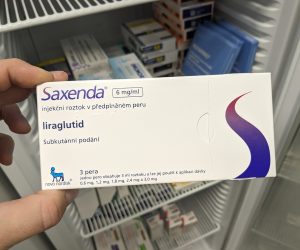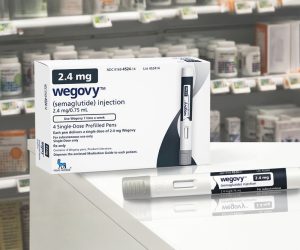How Aging Impacts Testosterone Levels: What Men Need to Know
The Natural Decline of Testosterone: What Every Man Should Understand
Aging is an inevitable part of life, but for many men, it brings unexpected challenges that impact physical, emotional, and sexual health. One of the most significant factors contributing to these changes is the natural decline of testosterone levels as men grow older.
Testosterone, the primary male hormone, is responsible for muscle mass, bone density, libido, and energy levels.
By the time men reach their late 20s or early 30s, testosterone levels begin to decrease gradually—approximately 1-2% per year. While this decline is normal, its effects vary widely from person to person.
For some men, lower testosterone levels may only cause mild symptoms, while for others, it can lead to fatigue, reduced strength, weight gain, and even depression.
At Florida Men’s Health, we understand the profound impact this hormonal shift can have on your quality of life.
In this blog, we’ll take an expert deep dive into the connection between aging and testosterone, what to watch for, and how to take control of your health.
The Science Behind Testosterone Decline with Age
To understand how aging impacts testosterone, it’s important to first understand how this hormone functions. Testosterone is primarily produced in the testes, regulated by signals from the brain (the hypothalamus and pituitary gland).
It plays a critical role in:
- Building and maintaining muscle mass
- Supporting healthy libido and sexual performance
- Maintaining bone density and strength
- Boosting energy levels and mental clarity
As men age, several factors contribute to the decline in testosterone production:
- Reduced Testicular Function: The testes naturally produce less testosterone as they age, leading to lower circulating hormone levels.
- Hormonal Dysregulation: The signaling process between the brain and testes weakens over time, affecting the body’s ability to maintain optimal testosterone levels.
- Chronic Health Conditions: Conditions like obesity, diabetes, and cardiovascular disease often develop with age and can accelerate testosterone decline.
- Lifestyle Factors: Poor diet, lack of exercise, and chronic stress can exacerbate age-related hormonal imbalances.
Symptoms of Low Testosterone in Aging Men
The effects of low testosterone may start subtly but often become more noticeable over time. Common symptoms include:
- Decreased Energy Levels: Feeling persistently tired, even after a full night’s rest.
- Loss of Muscle Mass and Strength: Struggling to maintain muscle tone or experiencing weaker physical performance.
- Increased Body Fat: Particularly around the midsection, as testosterone helps regulate fat distribution.
- Reduced Libido and Sexual Performance: A drop in sexual desire or difficulty maintaining erections.
- Mood Changes: Increased irritability, depression, or a lack of motivation.
- Cognitive Decline: Difficulty concentrating, remembering details, or making decisions.
If these symptoms sound familiar, you’re not alone. Many men dismiss these changes as “just getting older,” but the truth is that they’re often tied to treatable hormonal imbalances.
The Long-Term Effects of Untreated Low Testosterone
When left unaddressed, low testosterone can lead to more than just frustrating symptoms. Over time, it can contribute to serious health risks, including:
- Osteoporosis: Weak bones and increased risk of fractures.
- Cardiovascular Disease: Higher levels of body fat and reduced heart health.
- Type 2 Diabetes: Hormonal imbalances can impact how your body processes sugar.
- Cognitive Decline: Testosterone supports brain health, and its decline has been linked to memory loss and dementia.
How to Combat Testosterone Decline as You Age
The good news? There are effective, evidence-based ways to combat the effects of aging on testosterone levels and improve your quality of life. Here’s what you can do:
- Adopt a Healthy Lifestyle:
- Diet: Focus on whole, nutrient-dense foods that support hormone production, such as lean proteins, healthy fats, and vegetables. Avoid processed foods and excessive sugar.
- Exercise: Incorporate strength training and high-intensity interval training (HIIT) into your routine to naturally boost testosterone.
- Prioritize Sleep:
Quality sleep is essential for testosterone production. Aim for 7-9 hours of sleep per night and maintain a consistent sleep schedule.
- Manage Stress:
Chronic stress elevates cortisol levels, which inhibits testosterone production. Practice stress-reduction techniques like meditation, yoga, or mindfulness to maintain balance.
- Consider Testosterone Replacement Therapy (TRT):
For men with clinically low testosterone levels, TRT can be a game-changer. This safe and effective treatment helps restore optimal hormone levels, improving energy, libido, and overall well-being.
Feeling the effects of low testosterone? Florida Men’s Health offers advanced testing and treatment options to help you reclaim your energy and vitality. Contact us today to learn more about our customized testosterone therapy plans.
Why Early Action Matters
The sooner you address low testosterone, the better your chances of preventing long-term complications and reversing symptoms.
At Florida Men’s Health, we emphasize early intervention to help men lead healthier, more fulfilling lives.
Ignoring the signs of low testosterone doesn’t just affect your physical health—it can also impact your confidence, relationships, and overall happiness. Taking action now is an investment in your future self.
At Florida Men’s Health, we specialize in helping men navigate the challenges of aging with expert care and personalized solutions. Schedule your consultation today and take the first step toward lasting hormonal balance.
How Florida Men’s Health Can Help
At Florida Men’s Health, we know that every man’s journey through aging is unique. That’s why our approach goes beyond one-size-fits-all solutions. We offer comprehensive evaluations and advanced treatments designed to restore your energy, strength, and confidence.
If you’ve noticed changes in your energy, mood, or performance, don’t let aging hold you back. With our expert care and tailored testosterone therapies, you can feel like yourself again. Contact Florida Men’s Health today to start your journey toward better health and vitality.
Summary
- Testosterone naturally declines with age, starting as early as the late 20s.
- Symptoms of low testosterone include fatigue, reduced libido, mood changes, and muscle loss.
- Untreated low testosterone can lead to serious health risks like osteoporosis, cardiovascular disease, and cognitive decline.
- Strategies to combat low testosterone include a healthy diet, regular exercise, stress management, quality sleep, and testosterone replacement therapy (TRT).
- Florida Men’s Health offers expert evaluations and customized solutions to help men maintain hormonal balance and vitality as they age.







